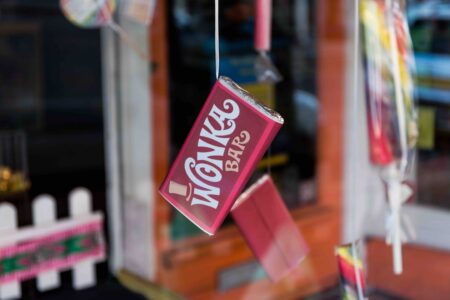Chocolate giants invest in Ivorian education project

Cocoa and chocolate giants Mondelēz International, Nestlé, Barry Callebaut and Mars are joining forces with the Jacobs Foundation on a community development and education programme in Côte d’Ivoire.
The Jacobs Foundation’s Transforming Education in Cocoa Communities (TRECC) project aims to reach at least 16,000 children and youth and 72,000 adults over the next three years to provide quality education, empower women and assure child labour remediation.
Mondelēz, Nestlé, Barry Callebaut and Mars will jointly invest CHF5 million ($5.1m) into the programme, while the Jacobs Foundation will match the companies’ investments with CHF3.8m when project goals are achieved.
Implementing organisations will get all or part of their payment upon achieving a set of predefined results. This, the Jacobs Foundation explains, is in contrast to traditional grants where payments may be made upfront, or on the delivery of inputs rather than results.
An independent evaluation will be performed at the inception and end of project implementation, ensuring impartial, rigorous impact measurement of previously agreed result criteria.
Lavinia Jacobs, chair of the Jacobs Foundation, highlights, “By setting up these partnerships between the Jacobs Foundation and the cocoa and chocolate industry on the basis of accountability and results orientation, we are laying a strong foundation for jointly improving the well-being of cocoa growing communities and their children in Côte d’Ivoire in the long run.
“The mechanism will incentivise us and all involved partners to reach the agreed goals in a cost-effective manner, and thereby positions TRECC projects as a leading social innovation.”
The Jacobs Foundation has already formed a strategic partnership with the World Cocoa Foundation (WCF) to align the efforts of the industry-wide sustainability strategy CocoaAction and TRECC.
Under the TRECC programme, Mondelēz, together with World Education International, will set up childcare education centres in Cote d’Ivoire for children aged 3-5, as well as provide women farmers with literacy training and access to savings and credit facilities.
Nestlé, meanwhile, aims to reduce the risk of child labour through improving literacy and numeracy levels. Through its partner, the International Cocoa Initiative, the company will set up informal bridging classes for out-of-school children aged 9-13, and provide additional support for children attending school but at risk of dropping out. The project also includes supplementary literacy training for adult women farmers.
Barry Callebaut plans to establish youth vocational training in rural, cocoa-growing communities, including pruning trees, fertilizer application and seedling nursery set up.
And Mars aims to strengthen women’s role in cocoa growing communities by equipping them with financial and agricultural skills, and engaging with men and boys to address gender inequalities. With its implementing partner CARE International, the company will create Village Savings and Loan Associations (VSLAs) in 24 communities to teach and enable women to save and borrow funds.



